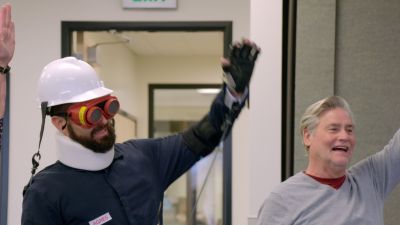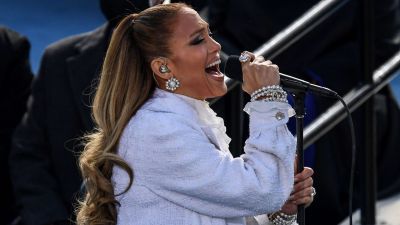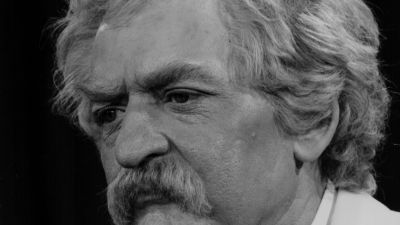During these trying days of social distancing, self-isolating and quarantines, days rife with fear and anxiety, my colleagues and I thought you might like some company. So each day we will be introducing you to poets we have met over the years. The only contagion they will expose you to is a measure of joy, reflection and meditation brought on by “the best words in the best order.”
Enjoy.
— Bill Moyers
Today, a poem written and read by Mark Doty at the 1999 Dodge Poetry Festival. He recalls the time his church choir decided to perform Handel’s Messiah. “This was very ambitious,” he tells the audience, “and a number of us felt some trepidation about the possible results.”
“Messiah (Christmas Portions)”
By Mark Doty
A little heat caught
in gleaming rags,
in shrouds of veil,
torn and sun-shot swaddlings:
over the Methodist roof,
two clouds propose a Zion
of their own, blazing
(colors of tarnish on copper)
against the steely close
of a coastal afternoon, December,
while under the steeple
the Choral Society
prepares to perform
Messiah, pouring, in their best
blacks and whites, onto the raked stage.
Not steep, really,
but from here,
the first pew, they’re a looming
cloudbank of familiar angels:
that neighbor who
fights operatically
with her girlfriend, for one,
and the friendly bearded clerk
from the post office
—tenor trapped
in the body of a baritone? Altos
from the A&P, soprano
from the T-shirt shop:
today they’re all poise,
costume and purpose
conveying the right note
of distance and formality.
Silence in the hall,
anticipatory, as if we’re all
about to open a gift we’re not sure
we’ll like;
how could they
compete with sunset’s burnished
oratorio? Thoughts which vanish,
when the violins begin.
Who’d have thought
they’d be so good? Every valley,
proclaims the solo tenor,
(a sleek blonde
I’ve seen somewhere before
—the liquor store?) shall be exalted,
and in his handsome mouth the word
is lifted and opened
into more syllables
than we could count, central ah
dilated in a baroque melisma,
liquefied; the pour
of voice seems
to make the unplaned landscape
the text predicts the Lord
will heighten and tame.
This music
demonstrates what it claims:
glory shall be revealed. If art’s
acceptable evidence,
mustn’t what lies
behind the world be at least
as beautiful as the human voice?
The tenors lack confidence,
and the soloists,
half of them anyway, don’t
have the strength to found
the mighty kingdoms
these passages propose
—but the chorus, all together,
equals my burning clouds,
and seems itself to burn,
commingled powers
deeded to a larger, centering claim.
These aren’t anyone we know;
choiring dissolves
familiarity in an up-
pouring rush which will not
rest, will not, for a moment,
be still.
Aren’t we enlarged
by the scale of what we’re able
to desire? Everything,
the choir insists,
might flame;
inside these wrappings
burns another, brighter life,
quickened, now,
by song: hear how
it cascades, in overlapping,
lapidary waves of praise? Still time.
Still time to change.
Since the publication of his first volume of verse, Turtle, Swan, in 1987, Mark Doty has been recognized as one of the most accomplished poets in America. Hailed for his elegant, intelligent verse, Doty has often been compared to James Merrill, Walt Whitman and C.P. Cavafy. His syntactically complex and aesthetically profound free verse poems, odes to urban gay life, and quietly brutal elegies to his lover, Wally Roberts, have been hailed as some of the most original and arresting poetry written today. The recipient of numerous grants and fellowships, Doty has also won a number of prestigious literary awards, including the Whiting Writer’s Award, the T. S. Eliot Prize, the National Poetry Series, the Los Angeles Times Book Award, the National Book Critics’ Circle Award, the PEN/Martha Albrand Award for first nonfiction, and the National Book Award for Fire to Fire: New and Selected Poems (2008). A long-time resident of Provincetown, Massachusetts, Doty teaches at Rutgers University in New Jersey.
(Continue reading Doty’s bio at the Poetry Foundation website.)
Watch Bill’s entire interview with Mark Doty in our video archive.



